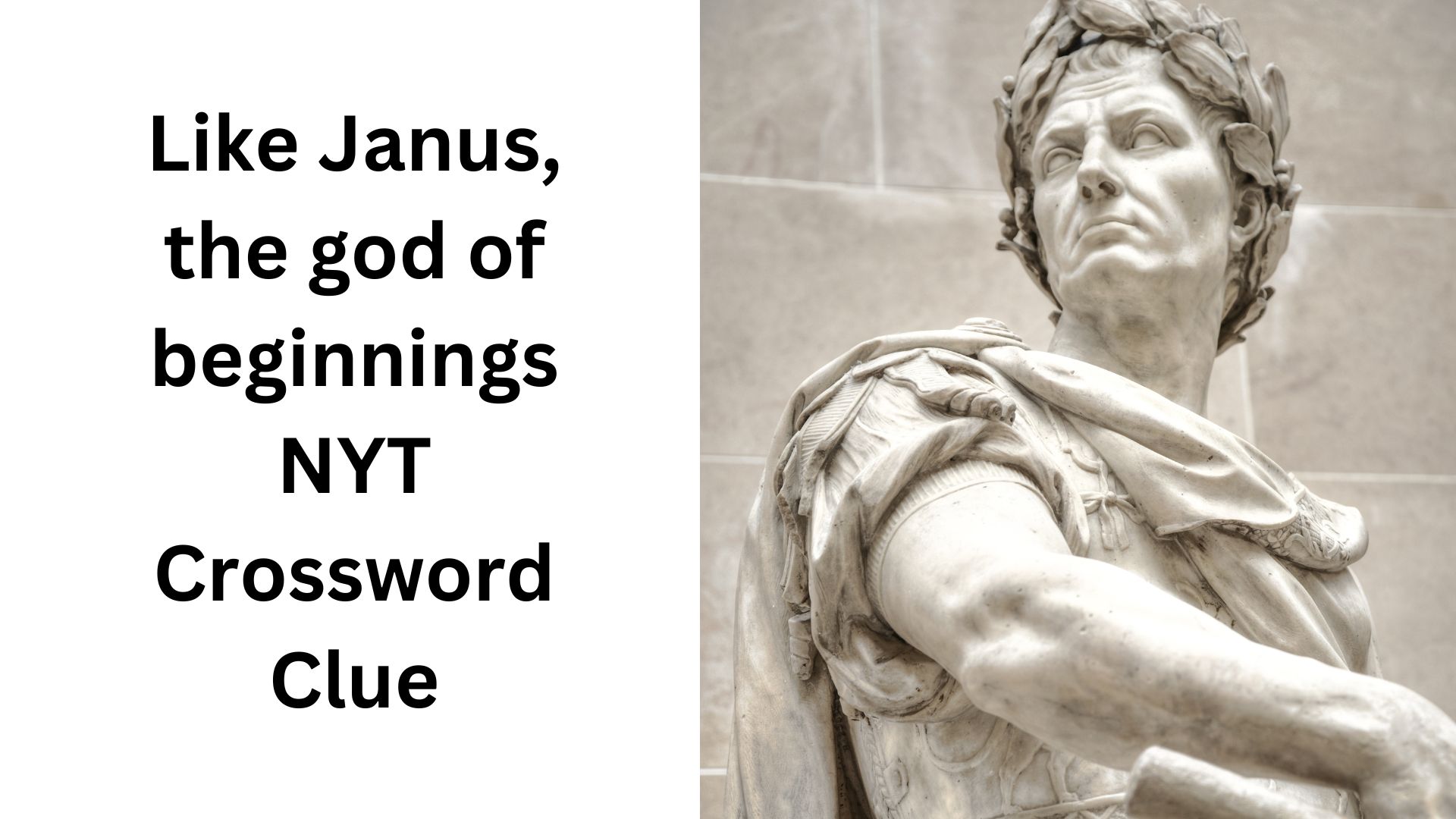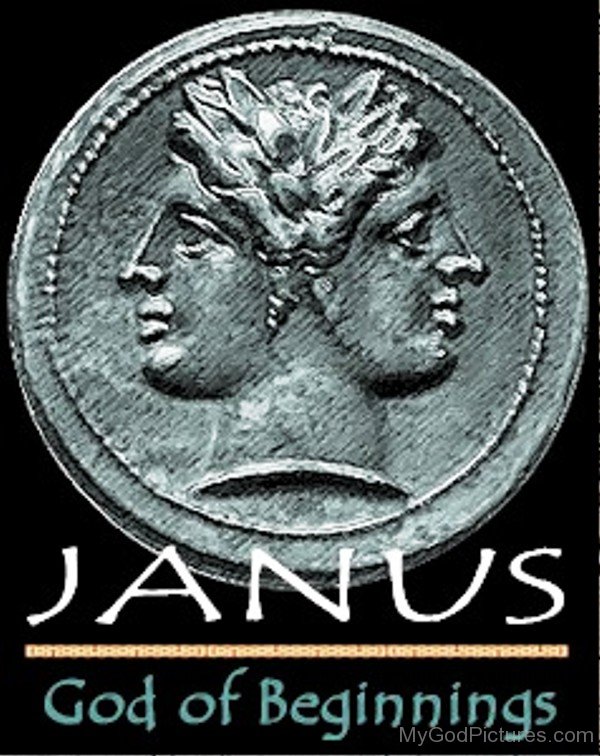God Of Beginnings Like Janus NYT: Exploring The Mythology And Symbolism
Janus, the Roman god of beginnings, transitions, gates, and doorways, holds a unique place in mythology and modern culture. As a deity associated with transitions and new beginnings, Janus has inspired countless interpretations and references, including in popular media such as the New York Times (NYT) crosswords. Understanding Janus and his significance can provide deep insights into ancient Roman religious practices and their lasting influence on contemporary thought.
Throughout history, Janus has been celebrated as a god who symbolizes the start of new ventures, the passage of time, and the duality of existence. His two faces, looking forward and backward, represent the ability to see both the past and the future, making him a fitting figure for discussions about beginnings and endings.
In this article, we will delve into the mythology of Janus, his role in ancient Rome, and how his symbolism continues to resonate in modern culture, including references in the NYT. By exploring these aspects, we aim to provide a comprehensive understanding of why Janus remains relevant today and what lessons we can draw from his story.
Read also:Nobody Does It Like Sara A Comprehensive Exploration Of Talent Achievements And Legacy
Table of Contents
- Biography of Janus
- Symbolism of Janus
- History of Janus in Ancient Rome
- Janus in the NYT Crossword
- Temples Dedicated to Janus
- Cultural Impact of Janus
- Modern Interpretations of Janus
- Mythological Stories Involving Janus
- Rituals and Festivals Related to Janus
- Conclusion
Biography of Janus
Janus is one of the most enigmatic figures in Roman mythology. Unlike many other Roman gods, who were adaptations of Greek deities, Janus appears to have originated independently within Roman culture. He is often depicted as having two faces, each facing opposite directions, symbolizing his ability to look both forward and backward in time.
Basic Information
Here is a summary of Janus's key attributes:
| Name | Janus |
|---|---|
| Domain | Beginnings, transitions, gates, doorways |
| Symbol | Two-faced head, key, staff |
| Mythology | Roman |
Symbolism of Janus
Janus's symbolism is deeply tied to the concepts of duality and transition. His two faces represent the ability to see both the past and the future, making him a powerful symbol of change and new beginnings. This duality is also reflected in his association with gates and doorways, which serve as thresholds between different states or realms.
Key Symbolic Meanings
- Beginnings and endings
- Transitions and transformations
- Duality and balance
- Time and eternity
History of Janus in Ancient Rome
In ancient Rome, Janus was revered as one of the most important gods. His temple, the Janus Geminus, was located in the Roman Forum and served as a symbolic gateway to war and peace. The doors of the temple were opened during times of war and closed during times of peace, making Janus a key figure in Roman political and military life.
Significance in Roman Religion
Janus was often invoked at the beginning of rituals and ceremonies, as he was seen as the god who presided over all beginnings. His role in Roman religion underscores the importance of transitions and new starts in both personal and communal life.
Janus in the NYT Crossword
Janus frequently appears in the New York Times crossword puzzles as an answer to clues related to mythology, beginnings, and duality. His association with transitions and new beginnings makes him a fitting subject for crossword clues that require a god of beginnings.
Read also:Girls And The Gays The Impact Of Colemanrsquos Advocacy On Lgbtq Communities
Common NYT Crossword Clues
- God of beginnings
- Two-faced Roman god
- Symbol of transitions
Temples Dedicated to Janus
The most famous temple dedicated to Janus was the Janus Geminus, located in the Roman Forum. This temple was unique in its design, as it had doors that could be opened or closed depending on the state of the nation. The temple's architecture reflected Janus's role as a guardian of transitions and thresholds.
Architectural Features
- Two-faced statue of Janus
- Doors that opened during war and closed during peace
- Location in the Roman Forum
Cultural Impact of Janus
Janus's influence extends beyond ancient Rome and into modern culture. His symbolism of duality and transition has inspired artists, writers, and thinkers throughout history. In literature, Janus is often used as a metaphor for characters or situations that embody opposing qualities or perspectives.
Modern References
- Films and television shows featuring Janus-like characters
- Artworks depicting Janus's two-faced nature
- Literary works exploring themes of duality
Modern Interpretations of Janus
In contemporary society, Janus's symbolism continues to resonate. He is often invoked in discussions about change, innovation, and the balance between tradition and progress. His ability to look both forward and backward makes him a fitting figure for exploring the complexities of modern life.
Applications in Modern Life
- Corporate branding and marketing
- Philosophical discussions about time and change
- Psychological insights into human behavior
Mythological Stories Involving Janus
While Janus does not feature prominently in many mythological stories, his role as a god of beginnings and transitions is evident in various tales. One notable story involves Janus's role in the founding of Rome, where he is said to have helped Romulus and Remus establish the city.
Key Stories
- Janus and the founding of Rome
- Janus as a mediator between gods and mortals
- Janus's association with time and eternity
Rituals and Festivals Related to Janus
In ancient Rome, several rituals and festivals were dedicated to Janus. The most important of these was the Ianus Quirinus, which marked the beginning of the new year and was celebrated with offerings and prayers. These rituals underscored the importance of Janus in Roman religious life.
Significant Festivals
- Ianus Quirinus
- Rites of passage and transitions
- Prayers for new beginnings
Conclusion
Janus, the Roman god of beginnings, transitions, and duality, continues to captivate and inspire people around the world. His symbolism of looking both forward and backward in time makes him a powerful figure for exploring themes of change, innovation, and balance. Whether in ancient Rome or modern culture, Janus remains a relevant and influential deity.
We encourage you to leave your thoughts and questions in the comments section below. Share this article with others who may be interested in learning more about Janus and his enduring legacy. For further reading, explore our other articles on mythology and symbolism.
TGI Fridays Closing: The Complete Guide To Understanding Store Closures And What's Next
Join Wewill Write: Unlock Your Writing Potential
Nice The Diddy: A Comprehensive Look At The Iconic Figure In Music And Entertainment

Like Janus, the god of beginnings NYT Crossword Clue

Janus God Of Beginnings

Janus God of All Beginnings Benicia Magazine